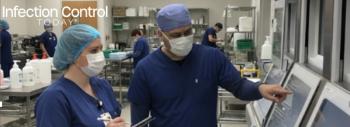
Aspergillus Said to Have Claimed Another Baby’s Life at Seattle Children’s Hospital
The Aspergillus mold was detected in the hospital’s operating rooms on Nov. 10, shortly after 6-month-old Elizabeth Hutt underwent her third heart operation.
A 7thinfant has died as a result of an Aspergillusmold infection after undergoing 3 heart surgeries at Seattle Children’s Hospital, the site of an outbreak that prompted the closure and renovation of 10 operating rooms and 2 equipment rooms last year. Six-month-old Elizabeth Hutt died yesterday as a result of an Aspergillus mold infection after undergoing 3 heart surgeries at the hospital,
A class action lawsuit against the hospital was filed last December on behalf of the families of children sickened by the Aspergillus mold. According to KOMO News, Elizabeth’s family has joined that suit, which claims that the hospital “engaged in years of cover-up designed to reassure its patients, doctors, nurses and the public that its premises were safe, when in fact they were not.”
The hospital conducted an investigation that found that Aspergillus has been in the air since at least 2001 and caused the deaths of 6 children in all (Elizabeth would be the 7th). Aspergillus spores can cause illnesses in people with weakened immune systems, damaged lungs, and asthma. Infections caused by Aspergillus include invasive aspergillosis, allergic bronchopulmonary aspergillosis, chronic pulmonary aspergillosis, and aspergilloma.
The hospital said today in a
“At the time, we believed most of these were isolated infections,”
The hospital is in the process of installing high-efficiency particulate air
In its press release today, the hospital provided an update about that installation. “On February 5, after completing the latest phase in the commissioning of the new air handling system, we reopened three of the operating rooms that already have HEPA filtration and one procedure room,” the press release stated. “The construction and installation of the HEPA filters in the rest of our operating rooms is continuing and those rooms remain closed until this work is completed. We will not start scheduling non-urgent surgeries until we have a full go-live date so that we can do everything we can to honor the schedule dates we give to our patients and their families.”
Last December, hospital spokeswoman Lindsay Kurs told Infection Control Today® that the hospital employs 5 infection preventionists. “The infection prevention team has been thoroughly involved in our multidisciplinary investigation into the Aspergillus surgical site infections, working to identify potential causes and recommend solutions” Kurs said at the time.
Lynch says that that’s “one thing we know. It’s associated with the way air is handled in operating rooms.”
Much of air flow occurs in the hard-to-reach infrastructure of hospitals. The buildings are often older. “How that works is always complicated,” said Lynch. “Some hospitals have air systems that handle humidity, some don’t. How to go about doing that isn’t abundantly clear.”
In the course of its investigation, Sperring last year said that the hospital “will examine our culture, our leadership, and how our teams communicate problems and escalate concerns.”
Newsletter
Stay prepared and protected with Infection Control Today's newsletter, delivering essential updates, best practices, and expert insights for infection preventionists.




